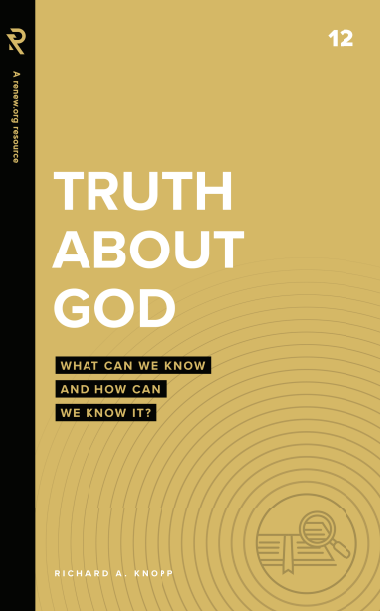What is a biblical worldview, and does it matter?
A biblical worldview is a view of the world which seeks to answer life’s biggest questions from the teachings of the Bible. Many people see having a biblical worldview as unimportant. This includes non-Christians who see the world from a different worldview, as well as Christians who don’t want to apply what the Bible says to cultural issues or everyday life. Yet if the teachings of the Bible are true, then we do well to hold them up like a lantern to the rest of reality in order to illuminate the answers to life’s biggest questions.
Let’s explore what worldviews are, as well as the dilemmas and dangers we face when we study them.
What is a worldview?
At its simplest, a worldview is a person’s view of the world. It’s your framework for understanding reality and answering the big questions about it. It’s basically a roadmap for navigating reality. Here are a couple of metaphors that can be helpful: Your worldview is like a pair of glasses; it determines how you view the world. Your worldview is also like a jigsaw puzzle box top; it gives you the big picture so that you can make sense of the individual pieces and arrange them in place.
“Your worldview gives you the big picture so that you can make sense of the individual pieces and arrange them in place.”
There is overlap between your worldview and the grand story you believe about reality. Steve Wilkens and Mark L. Sanford, authors of Hidden Worldviews, describe worldviews as “cultural stories” we believe about reality. For example, if your worldview is “scientific materialism” (one of the eight worldviews described in their book), the story you believe about reality is that the physical world encompasses all reality—it is all that was, is, and will be.
What kinds of questions does your worldview help you answer?
Your view of the world helps you make sense of life’s biggest questions. Like what? Here are five common big-picture questions people have:
- Origin: Where do I come from?
- Identity: Who am I?
- Meaning: What is my purpose?
- Morality: How should I live?
- Destiny: What happens when I die?
Christian philosopher Dallas Willard boils it down to three main worldview questions:
- What counts as knowledge of reality?
- Who is really well-off?
- Who is a “really good” person?
“What counts as knowledge of reality? Who is really well-off? Who is a ‘really good’ person?”
James Sire, author of the landmark book on worldviews called The Universe Next Door, lists eight main questions:
- What is prime reality—the really real?
- What is the nature of the world around us?
- What is a human being?
- What happens to a person at death?
- Why is it possible to know anything at all?
- How do we know what is right and wrong?
- What is the meaning of human history?
- What personal, life-orienting core commitments are consistent with this worldview?
These are the kinds of questions thinking people have contemplated throughout history, and our answers to these big-picture questions shape how we live everyday life.
Why is it helpful to understand worldviews?
Thinking about worldviews can help you grow in empathy and pursue truth.
Empathy. “Worldview” may sound a bit philosophical and academic, but it’s actually one of the most important concepts you can understand if you want to grow in empathy. It might make zero sense to a Christian why another person may be uninterested in hearing her talk about the truth of the gospel (they explain that they’re happy she has her truth, but they have their own truth). It can help you be a lot more empathetic if you can understand the worldview of postmodernism they have embraced. When you take the time to consider the worldview another person is coming from, it can help you to not dismiss the person as crazy.
“When you take the time to consider the worldview another person is coming from, it can help you to not dismiss the person as crazy.”
Truth. We should always be seeking to form our lives around truth—so that 1) our beliefs align with reality and 2) our lifestyle aligns with our beliefs. Keeping the concept of worldviews in mind can help in both ways. For example, as you seek for your beliefs to align with reality, it is good to consider the big-picture questions people have asked and answered throughout history—and to line up the answers to explore which one best corresponds with reality. And as you seek to align your lifestyle with your beliefs, it is helpful to ask if you are living consistently with the beliefs you say you believe? If you’re a Christian, do you really trust God when you’re tempted to be anxious? Do you really worship God when you’re tempted to idolize fame or financial security?
It’s also worth mentioning that, if you’re a Christian, one of your core convictions will be that other people need Jesus too, for part of the core teaching of Scripture is that human beings are eternally lost without repentant faith in Jesus. Learning other people’s worldviews is key to knowing your audience when you get the opportunity to tell them about Jesus. The apostle Paul was a Jewish Bible scholar, and yet he knew the worldview of Stoicism well enough to where, when he was asked to address the Areopagus in Athens, he preached the gospel in a way that made sense to the Stoic mindset—and even quoted from Stoic poets (Acts 17:22-31).
What is a biblical worldview?
We want to be a little cautious here before delving too deeply too quickly. By focusing too much on a biblical worldview, we can make it seem like our faith is primarily a set of answers to questions. But the Bible wasn’t written first and foremost to be an answer book. It’s more of a storyline for humanity. This is why Wilkens and Sanford’s insight in Hidden Worldviews is especially helpful: Worldviews may help us answer life’s biggest questions, but worldviews are perhaps best described as “cultural stories” we believe about reality. In this light, the gospel of Jesus (his incarnation, death, resurrection, enthronement, return, etc.) is far more foundational than “the biblical worldview.” It’s insofar as we gather our answers to life’s biggest questions from the Christian gospel that we can say that we have a biblical worldview.
“The Bible wasn’t written first and foremost to be an answer book. It’s more of a storyline for humanity.”
So, onto our central question here. What is a biblical worldview? A biblical worldview is a view of the world which seeks to answer life’s biggest questions from the teachings of the Bible, with a special focus on the gospel storyline. As such, here is a sampling of basic biblical answers to some of these big-picture questions:
- Where do we come from? We are created by God.
- Who are we? We are the creatures God made in his image.
- What is our purpose? God created us to know and follow him as we fill the earth and reign over it as the managers he has put in charge.
- What is our core problem? We fall short of God’s glory because we pridefully resist his authority as a threat to our well-being.
- How is this problem solved? We turn from our self-centered ways and trust and give our allegiance to Jesus the Messiah as our Savior, Lord, and King, and he forgives us, fills us with his Spirit, and restores us to our original image.
- How should we live? We should live according to the way of Jesus the Messiah, which can be summarized as loving God and loving people as he teaches.
- What happens when we die? We are either with the Lord or apart from him for eternity, based on our relationship with Jesus through faith in him and his gospel.
“There are massive differences between the different worldviews.”
There are other big questions to answer, and some Christians may offer slight variations in the answers they give. But looking at different big-picture worldview answers is instructive: If we were to put together a chart with these questions as columns and include a different worldview per each row, it would quickly become clear that there are massive differences between the different worldviews. It would also clearly show that having a biblical worldview is far from a default perspective, even in a Christian-influenced part of the world like the Western world.
What other worldviews exist besides a biblical worldview?
If “worldview” is simply a person’s view of the world, then it would make sense that there are as many worldviews as there are people on the planet. Yet since worldviews typically zoom out to life’s biggest questions, we can categorize most people’s worldviews into a few basic ones.
There are helpful books which list some of the world’s most prominent worldviews. For example, the philosophy-oriented Worlds Apart: A Handbook on Worldview (Wipf and Stock, 2003) by Norman Geisler and William Watkin lists seven basic worldviews:
- Theism: There is one God who created all.
- Atheism: There is no God.
- Pantheism: Everything is God.
- Panentheism: God is in an eternal process of growing and becoming.
- Deism: God created the world but doesn’t intervene in it.
- Finite Godism: The God that exists is limited in some way (e.g., is not all-powerful)
- Polytheism: There are many gods.
“James Sire walks through worldviews in a somewhat chronological order, based on the succession of dominant worldviews in the Western world.”
In Universe Next Door (IVP Academic, 2020), James Sire walks through worldviews in a somewhat chronological order, based on the succession of dominant worldviews in the Western world (adding a final one, Islamic theism, which is not yet dominant but is nonetheless growing in popularity):
- Christian Theism: The triune God created all and restores us by grace through faith in Jesus.
- Deism: God created the world but doesn’t intervene in it.
- Naturalism: All that exists is the physical world.
- Nihilism: There is no ultimate truth, meaning, or right and wrong.
- Existentialism: We create our own truth and meaning.
- Eastern Pantheistic Monism: We merge with the divine through meditative techniques learned from Eastern religions.
- New Age-Spirituality: We combine elements of Eastern Pantheistic Monism (e.g., reincarnation and Eastern meditation) with popular psychology and occultic practices.
- Postmodernism: The concept of absolute truth is a human construct used to get power, so we need to prioritize the stories of our own tribes and emphasize our own truth.
- Islamic Theism: The singular God Allah created all and saves those who submit to him in obedience.
In Hidden Worldviews: Eight Cultural Stories That Shape Our Lives (InterVarsity, 2009), Steve Wilkens and Mark L. Sanford list eight worldviews which are often less obvious than a person’s religious affiliation, but which have massive influence under the surface in Western hearts and minds. In addition to the already-described worldviews of New Age, Postmodern Tribalism, and Scientific Naturalism, they discuss the following:
- Individualism: My interests are the center of reality.
- Consumerism: My worth is tied to what I own.
- Nationalism: My nation is more above all.
- Moral relativism: My truth is more important than the truth.
- Salvation by Therapy: My deepest problems can be solved by psychology.
“Many people’s worldviews are syncretistic combinations of common worldviews.”
No list is perfect. For example, the highly influential religion of Buddhism doesn’t neatly fit into any of the worldviews listed above. As researchers are finding (see below), many people’s worldviews are syncretistic combinations of common worldviews. As an example, longtime researcher George Barna suggests that “America’s most popular worldview” is basically a combination of deism and “salvation by therapy” called “moralistic therapeutic deism” (a term coined by sociologist Christian Smith). Although lists like these are imperfect and can never really pinpoint a particular person exactly, such categorizations do help us in exploring common worldview answers to life’s biggest questions.
Does it matter whether you have a biblical worldview?
If the teachings of the Bible are true, then it absolutely matters whether you allow those beliefs to affect the way you view the world. To use common metaphors, if you don’t look at reality through the true worldview, then it’s like trying to make sense of thousands of individual puzzle pieces without the box top. Or it’s like trying to make sense of the outside world with a pair of glasses that distorts rather than bringing clarity.
George Barna released unfortunate news regarding how syncretistic the worldviews of Christians in America have recently become, whether parents or pastors. Most shocking of all is how, based on Barna’s 54-question survey taken by 1,000 Christian pastors (including senior, associate, teaching, children’s/youth, and executive pastors), “just slightly more than a third (37%) have a biblical worldview and the majority—62%—possess a hybrid worldview known as Syncretism.
Think about the implications. These are pastors and parents who call themselves Christian but have a worldview only partially informed by Scripture. With cultural winds blowing Western culture ever-farther from biblical Christianity, it will take an act of God for the people under these pastors’ and parents’ shepherding to develop a biblical view of the world.
“These are pastors and parents who call themselves Christian but have a worldview only partially informed by Scripture.”
If we’re looking at the world biblically, we will acknowledge a war going on in the realm of worldviews and how people think. Here’s how the apostle Paul articulated the war:
For though we live in the world, we do not wage war as the world does. The weapons we fight with are not the weapons of the world. On the contrary, they have divine power to demolish strongholds. We demolish arguments and every pretension that sets itself up against the knowledge of God, and we take captive every thought to make it obedient to Christ. (2 Cor. 10:3-5)
Church leaders are to equip and train people to “take captive every thought to make them obedient to Christ.” How we think and what we believe really matter. Statistics like those from Barna’s surveys (as well as perhaps stories in your own church and family) tell us that there are many, many spiritual shepherds who, far from demolishing arguments that contradict Christ, are welcoming wolves as guest lecturers. Instead of thinking according to the ways of Jesus, too many Christians are now thinking according to the ways of the world around us.
“…spiritual shepherds who, far from demolishing arguments that contradict Christ, are welcoming wolves as guest lecturers…”
What major dilemma unfolds as we study worldviews?
There are some people who prefer not to get involved in worldview disputes. They are happy to claim Switzerland-style neutrality when it comes to questions of ultimate truth. A problem that emerges for these people is that, when it comes to worldviews, everybody has one.
Let us say that again: everyone has a worldview.
Even the position that says, “Everybody’s truth is equally valid” is itself a worldview (“relativism”), which, if true, would mean that all contradicting worldviews are false. So, there’s no neutrality in the collision of worldviews. Everyone will have answers to big-picture questions which will slope their view toward or away from truth.
“Everyone will have answers to big-picture questions which will slope their view toward or away from truth.”
Unfortunately for people who prefer not to get involved in such debates, it’s actually more spiritual war than intellectual debate (again, see 2 Cor. 10:3-5 above), and each person is already on one side or another.
What are the potential dangers of teaching a biblical worldview?
Although it is a necessary thing to teach the biblical worldview to Christians (which both of us have done and continue to do), there are some potential pitfalls to be aware of. For one thing, if we teach biblical answers to only a narrow list of worldview questions, we’ll have a disproportionate, almost checklist style of faith formation. It’s possible to think, okay, if we just get them to believe Christianly in this list of areas, then it’ll be a foolproof path to lifelong faithfulness. Many Christian traditions have taken this narrow approach. But faith formation is more all-of-life, a matter of holistic, relational discipleship—of heart, soul, mind, and strength—not of checking answers on a test of worldview questions.
Another potential danger: It’s easy to consider a person’s worldview (let’s say the person is a Muslim) and assume you know most of the relevant spiritual information about the person. Is it helpful to know about the official answers given to life’s biggest questions according to the person’s religious persuasion? Yes. But individuals are more complex than that. Nothing can substitute for relational interaction and genuine care.
“Nothing can substitute for relational interaction and genuine care.”
Here’s a final danger to be aware of: It is possible for well-meaning preachers and teachers to use biblical worldview training as an opportunity to sneak in teaching which is more about the cultural and political leanings of the teacher than about what the Bible actually teaches. Let’s say you were wanting to dissuade your students from embracing socialism as an economic system. Training your students in the virtues of free market capitalism and the failures of socialistic policies is one thing. But doing so and calling it “biblical worldview training” is a stretch. It’s probably better to reserve the term “biblical worldview” for the bigger questions which the Bible provides clear answers on.
What’s dangerous about not teaching a biblical worldview?
Have you thought about what your Christianity or discipleship becomes when it remains disconnected from how Scripture answers life’s biggest questions? In other words, when we claim to be disciples, but we get our actual views of reality from somewhere else? For too many, Christianity has become a personal, inspirational, watered-down “faith” without any meaningful implication for how we live life. As Christian sociologist Os Guinness lamented, “Many Christians have a faith too privatized. Privately engaging, publicly irrelevant. It’s not integrated.”
Where should we start in teaching a biblical worldview?
To start with, every disciple and every child raised in a Christian home needs to know the basic worldview of Scripture, with a focus on the gospel. Church leaders have an obligation to make that framework crystal clear. It is the priority in disciple-making homes and churches. We teach preachers and elders, who tell us they want to shift to disciple making, to start with this focus first. We teach leaders to start with the gospel itself. Make it clear for the people.
“Start with the gospel itself. Make it clear for the people.”
New Testament scholar Matthew Bates helpfully summarizes the gospel, our response to it, and its benefits for us in the following ways:
What is the gospel?
Jesus is the saving king who[1]
- preexisted as God the Son,
- was sent by the Father,
- took on human flesh in fulfillment of God’s promises to David,
- died for our sins in accordance with the Scriptures,
- was buried,
- was raised on the third day in accordance with the Scriptures,
- appeared to many witnesses,
- is enthroned at the right hand of God as the ruling Christ,[2]
- has sent the Holy Spirit to his people to effect his rule, and
- will come again as final judge to rule.
What is the gospel response?
Our response to the gospel is faith, which is allegiance, loyalty, and faithfulness to Jesus the king.
What are the gospel’s benefits?
The gospel’s benefits for those who have faith is new life in the forgiveness of sin, the indwelling Holy Spirit, new identity, purpose, kingdom life here and in eternity, and all of God’s promises for the new heaven and new earth.
Conclusion
Again, there is a bigger storyline to a biblical worldview, but the gospel is the magnificent core.
In Scripture, God gives us the true view of the world. Everyone will be blessed by knowing and believing it. So, let’s share the gospel and Scripture’s answers to life’s biggest questions. As we do so, we help the people we disciple think and live with Jesus Christ at the center, in a way that is personally and publicly relevant.
And in so doing, we will invite a hearing for the truthfulness of our faith in a rapidly changing world that needs the hope of a biblical worldview now more than ever.
[1] Matthew Bates, The Gospel Precisely: Surprisingly Good News about Jesus the King (Renew, 2021).
[2] The reason Bates italicizes #8 is that Jesus’ enthronement is often repeated in the New Testament as the gospel’s climax.
Book by Richard A. Knopp
An Introduction to Knowing Truth about our Creator
PURCHASE NOW







